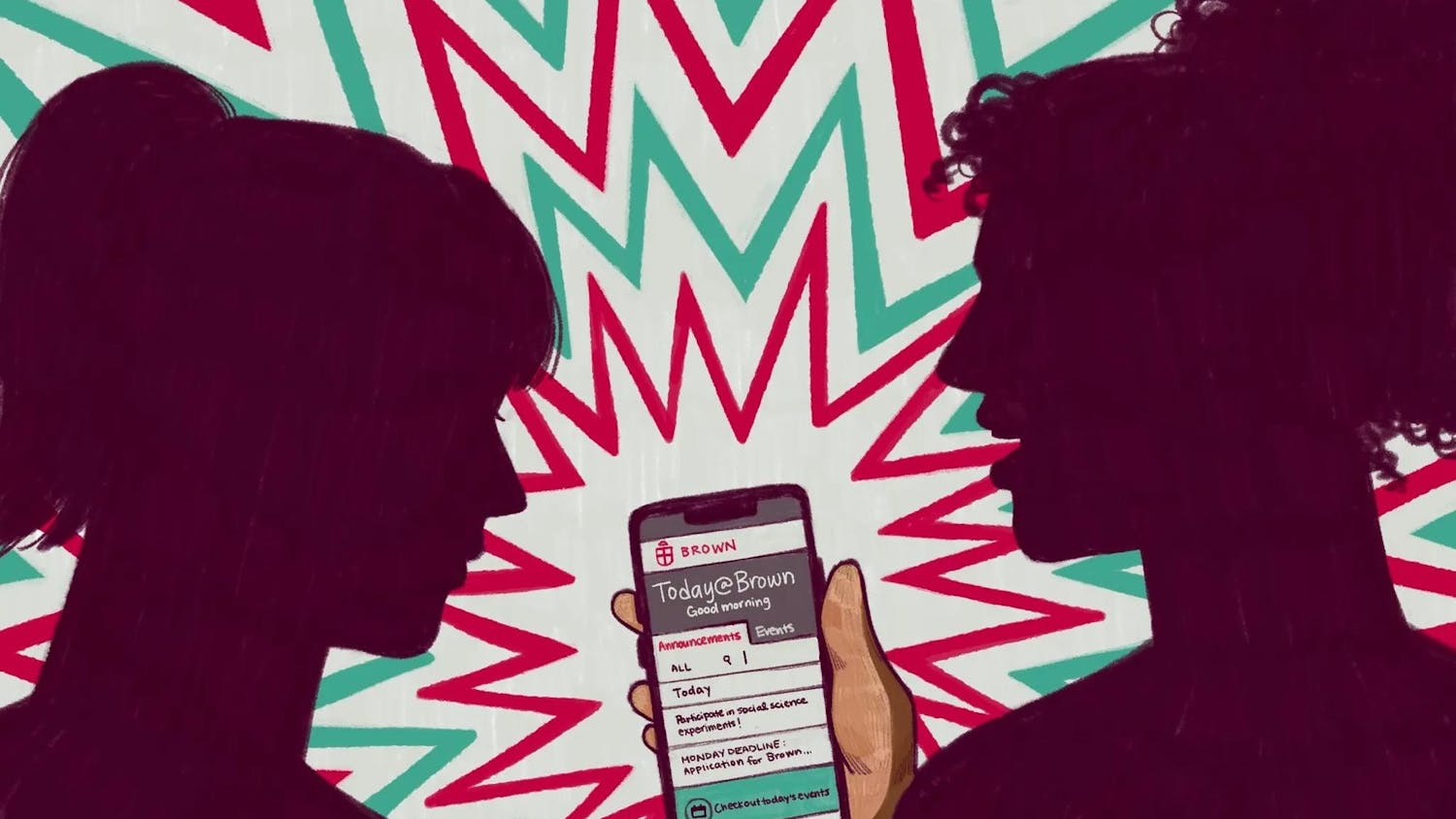It does not take a detective to know where Brown banks. As anyone who receives checks from the University as an employee or has ever walked into the basement of the Stephen Robert '62 Campus Center can tell you, this is a Bank of America school, though Sovereign Bank's campus center ATM and strategic Thayer Street branch location should probably earn it an honorable mention as the second choice on campus.
This arrangement may seem fair enough, if not downright convenient, to any observer. As a holder of a Sovereign Bank account, I, for one, rejoice in the convenience of their ATMs, and I know from conversations that my friends with Bank of America accounts feel much the same way. And why shouldn't they? Adidas makes clothes for our sports teams, and Bank of America makes cards for our shopping sprees.
But the more I inquire about this seemingly mundane set of observations, the more I find reasons to feel concerned as a student and as a consumer.
It is no coincidence that Bank of America is so accessible to students. But it would be more to the point to say that Brown students are accessible to Bank of America, which highly values this access — to the tune of a seven-year contract worth $2.3 million. This money is not just about who gets the ATM in the campus center. As a Bank of America executive said in 2006, it is about students as "an emerging market that we could really capitalize on."
Since 2006, Bank of America has certainly been capitalizing on students. In that year, it purchased MBNA, a credit card company that had pioneered a type of contract known as an affinity agreement. Affinity agreements give banks broad access to consumers through institutions like colleges. Bank of America quickly became the industry leader in developing such agreements, paying colleges $62 million in 2009 alone.
Colleges have been secretive about the details of these agreements, but according to a 2010 investigation by the Huffington Post Investigative Fund, components have included colleges agreeing to provide banks with students' personal contact information, giving banks priority access to athletic and other events for advertising purposes and actively marketing banks' credit cards. In return, colleges have received commissions for every student who opens a credit card account and a cut of every purchase the student makes with that credit card. In other words, banks have been paying colleges to encourage their students to acquire and use credit cards — the more the better.
I do not know the specific terms of the University's contract — like many schools, Brown has not made the terms of its contract easily accessible, though the Credit CARD Act of 2009 requires that such information be made available.
What bothers me about the current state of affairs is not that the University receives so much money from Bank of America — and possibly other banks — as much as it is that the University is treating me and my fellow students like commodities. When Brown accepted $2.3 million from Bank of America, it was selling me and so many students like me as potential lifelong Bank of America customers. And when it signed that contract, Bank of America knew that students are a good group to invest in, to shower with credit cards and ultimately to hook like fish in a pond. Bank of America knew that students are often inexperienced financial planners with a tendency to accumulate credit card debt and incur fees that can only add to their profitability as customers.
I would not want to inconvenience other people by asking the University to remove the ATMs in the campus center, or even to instantly end its affinity agreements. But I do think the University should come clean about its relationship with Bank of America and any other banks with which it may have agreements. These agreements should be made easily accessible to the public for general scrutiny. If the University is going to sell its students, I think we should at least be able to read the terms under which we have been commodified.
Ian Trupin '13 is a COE/Organizational Studies concentrator who doesn't always take himself as seriously as he fears the general tone of his columns may suggest. But he is serious about this. So be very afraid.




